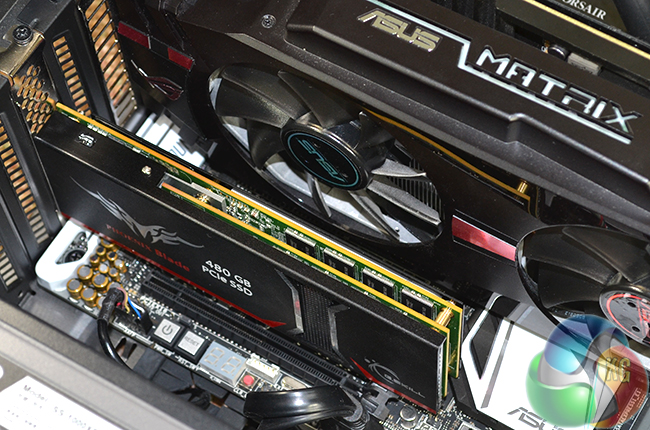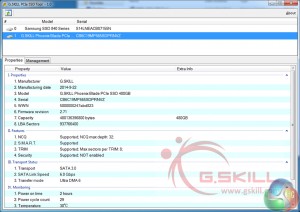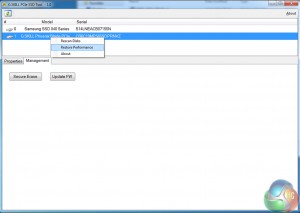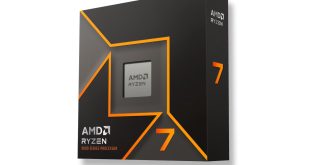We test the G.Skill Phoenix Blade SSD while it is installed in a dedicated PCIe 3.0 x8 slot on our Asus X99 Deluxe motherboard.
This configuration ensures that bandwidth bottlenecks are eliminated.
Testing is performed with an empty drive in order to challenge G.Skill's maximum performance claims.
G.Skill includes a Windows software tool that allows users to restore their drive performance, update the firmware, and view device information. There is also a Windows driver to install when using the drive.
When booting into Windows, there is a delay of approximately five seconds while the Phoenix Blade initialises. This is one of the drawbacks of using a third-party chipset to link the drive's controllers to the physical interface.
Test System:
- Processor: Intel Core i7 5960X ES.
- Memory: 16GB (4x 4GB) G.Skill Ripjaws4 2666MHz CL15 DDR4 @ 1.20V.
- Motherboard: Asus X99 Deluxe.
- Graphics Card: Asus R9 280X Matrix Platinum 3GB.
- System Drive: 500GB Samsung 840.
- CPU Cooler: Corsair H100i.
- Case: NZXT Phantom 630.
- Power Supply: Seasonic Platinum 1000W.
- Operating System: Windows 7 Professional with SP1 64-bit.
Compared SSDs:
- OCZ RevoDrive 350 480GB (PCIe).
- Plextor M6e 512GB (PCIe M.2).
- Samsung 840 EVO 1TB (SATA 6Gbps).
- ADATA SP610 512GB (SATA 6Gbps).
The above drives were evaluated in a different test system to the one used today. All tests are entirely storage-related therefore test system differences are unlikely to cause any discrepancies.
Tests:
- AS SSD.
- ATTO.
- CrystalDiskMark.
- IOMeter.
 KitGuru KitGuru.net – Tech News | Hardware News | Hardware Reviews | IOS | Mobile | Gaming | Graphics Cards
KitGuru KitGuru.net – Tech News | Hardware News | Hardware Reviews | IOS | Mobile | Gaming | Graphics Cards






but that price tho. I rather buy a car
Will wait for Black Friday 2015
A £500 car??? You can’t get a decent push bike for £500 never mind a car!